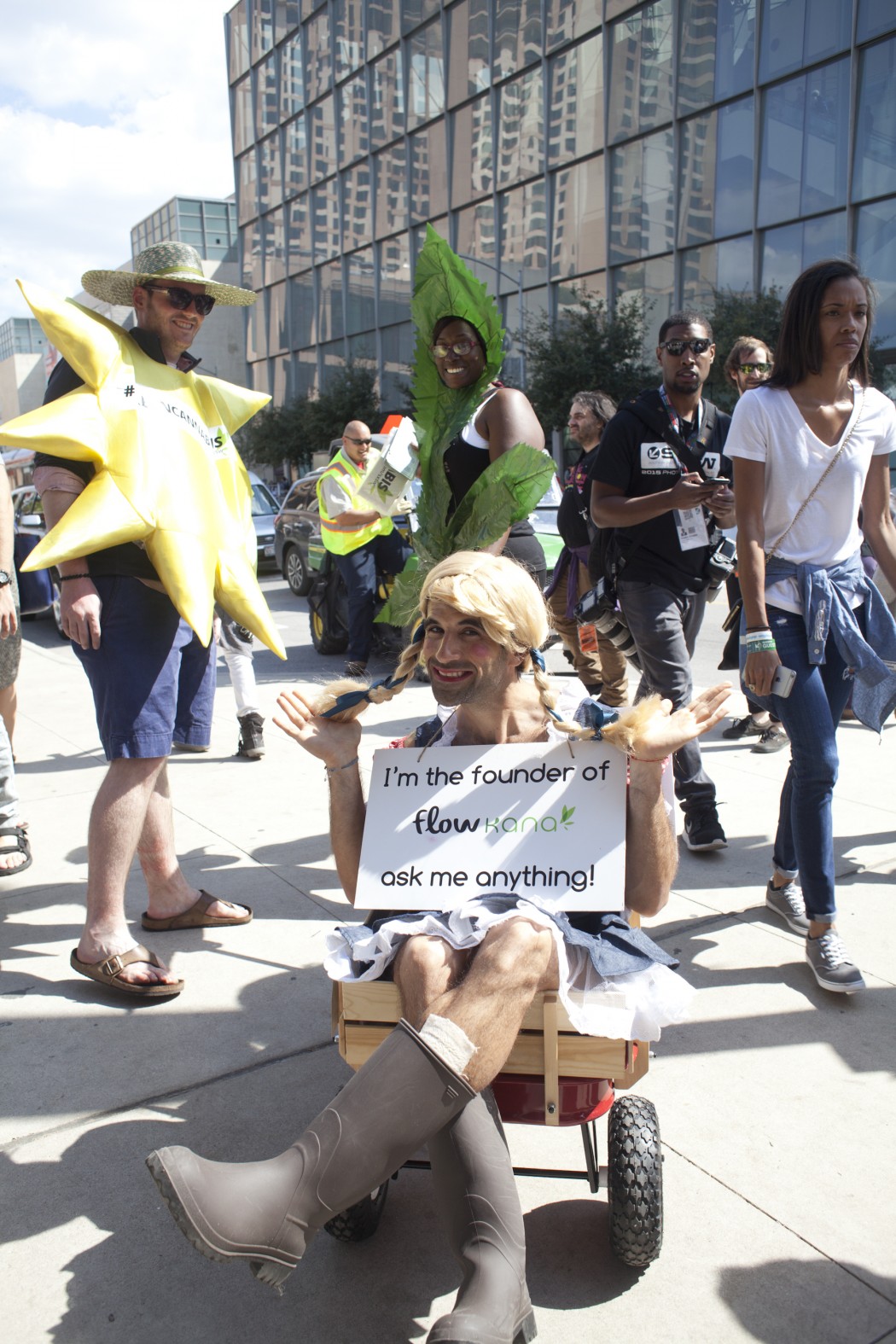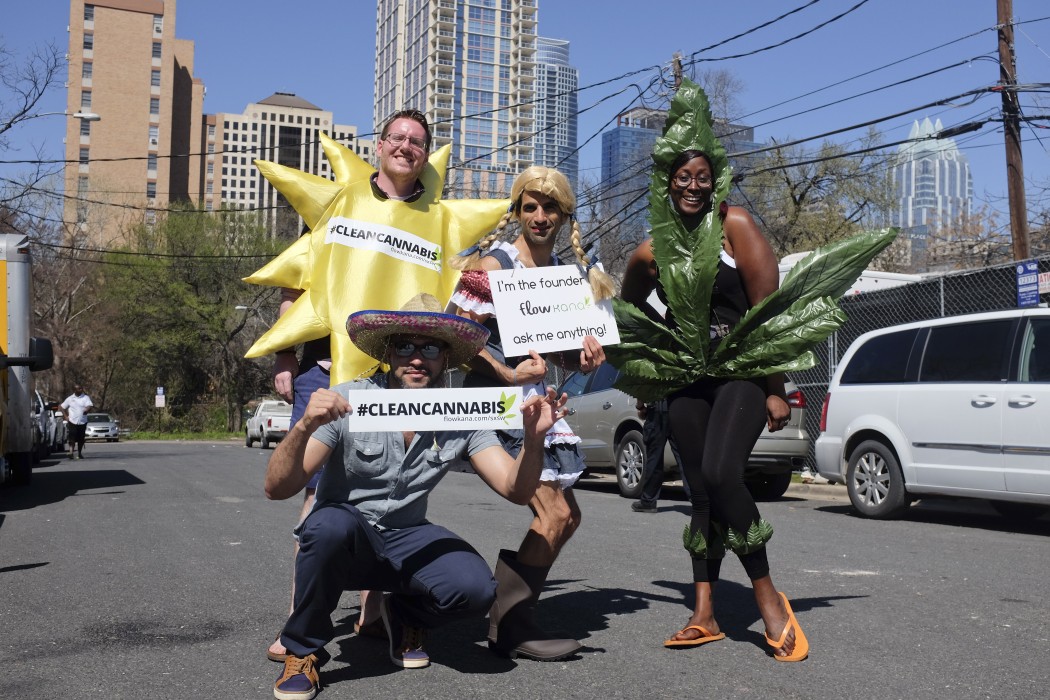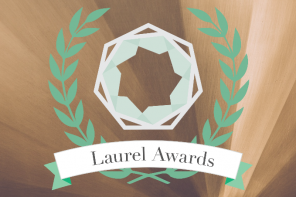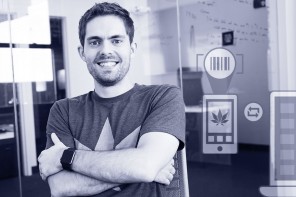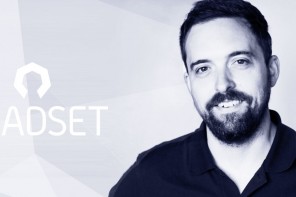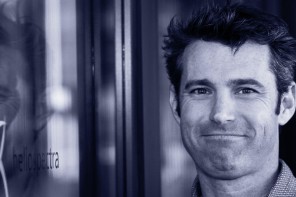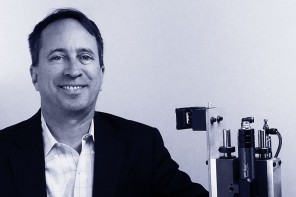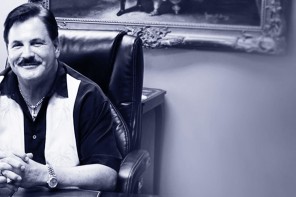Michael Steinmetz: Flow Kana
Are you adding value to the cannabis space? Do you understand people? Have you found the balance in stepping away from the business to look at the bigger picture? These are just some of the fundamentals that Michael Steinmetz, founder of Flow Kana, uses to lead his company in the positive direction he’s envisioned. His demeanor is thrilling and his passion is contagious and we’re humbled by his mission to make a positive difference in the cannabis community.
What was the deciding factor for you to join this particular industry?
I’ve always been very passionate about this space. I’ve always felt that cannabis would soon become a very important industry in the world and it’s really up to the entrepreneurs and business owners who first pioneer this space to really set the tone to make this a professional and responsible workspace – I truly believe that! You know, I’m originally from Venezuela where I owned a food distribution company and was focused on growing that business from 2008 – 2014 and I suppose the turning point for me to move on from that and take this industry seriously was the 2012 election that almost legalized California. At that point I really thought, “Wow! We’re really close to making this happen!” This was an indication to me that it was coming. So, I decided to sell my company and come fully onboard with this industry and try to make an earning by adding value to this space.
What skills from your previous experiences helped you in what you are doing now?
I think that business, regardless of whatever industry you are in, is fundamentally the same. For me, business has always been about people. I always say that 100% of your customers are real people; 100% of your employees are real people; 100% of your business partners are real people; So, if you don’t understand people, you don’t understand business. What I learned from my previous experience in business was how to create company culture, how to lead a team, how to unite a group of people under one vision, and how to be hyper-focused. As the saying goes, you never die of starvation, you die of indigestion. In other words, you only die if you try to tackle too many things at once. So, I think it’s very important to be very disciplined and very focused and also be really really good with people. You know, at the end of the day, we’re here to build a community – Building relationships is incredibly important!
For me, business has always been about people. I always say that 100% of your customers are real people; 100% of your employees are real people; 100% of your business partners are real people; So, if you don’t understand people, you don’t understand business.
Tell us about the point in the time you realized the coming of the ‘green rush’?
It’s honestly like I said above: It was the California electoral ba lot year! When I saw how close we were to legalizing and began seeing the emergence of technology, innovation, and capital in this industry, it was a turning point for me – Seeing the confluence of all these things is what help me realized it all.
Describe your work ethic to me in one word.
Persistent. I think it’s one of the most important traits to have as a business owner. That’s how people fail is by losing faith right there at the end when things get complicated. If I had to choose one word, it’d definitely be that. One of my favorite quotes pertaining to business and leadership is: “In business you have to be confident, not arrogant. You have to be kind, not weak. You have to be humble, not shy. As a leader, you have to be that combination of character.”
Who is a person that you consider as a role model? Why and how did this person impact your life?
That’s a very interesting question. So, I didn’t go the traditional route of getting my MBA, I learned most of what I know about business and have really built my character on the fly. One of the things that I decided early on in my career as an entrepreneur was to follow the entrepreneurs that I deeply respected and admired in history and learn from them. I think business leaves clues and if you have the right mind set, you’ll set out to grow and learn by finding those clues. The sky is the limit.
One of those entrepreneurs that I deeply admire is Richard Branson. I would say that I definitely try to closely resemble him. He’s instilled in me that you don’t need to know about the nuts and bolts of a plane to get into the airlines industry. What you really need to know is how to lead people and I think Richard Branson has been one of the very successful entrepreneurs who has tackled many different industries and has done so with the same philosophy: Doing good, adding value, and still having fun! I think that’s a very important part of business. You are going to spend most of your life doing it, so enjoy it! You have to have a higher purpose and a higher growing principle beyond just having money and making profits. So, if I had to name a role model who I have not yet met, it’d be Richard Branson.
What you really need to know is how to lead people and I think Richard Branson has been one of the very successful entrepreneurs who has tackled many different industries and has done so with the same philosophy: Doing good, adding value, and still having fun!
Now, if I were to name someone in my life who has deeply affected me personally it would be the first business partner I had, Isaac Castejon. Him and I started at a young age as entrepreneurs and I learned a lot from him. I learned how to be kind and respectful and I learned how to utilize proper communication. I think he’s one of those really important people in my life even though we’ve gone our separate ways since that partnership and our lives don’t really overlap anymore. But even then, I still consider him a very important role influence on my career.
How do you find inspiration in this industry? What have you found that has inspired you?
Wow, I think what inspires me the most is being really close to the community. For me, I started off two or three years ago wanting to get into this space and into the community and I honestly wanted to learn all that I could about it. The time when my vision shifted was when I was in Humboldt meeting different farmers, trying to understand them. They see cannabis in an entirely different way: It is not a cash crop, it’s way of being, it’s a lifestyle! Their entire region is dependent on it. I think that was a ray of inspiration for me to find out about this amazing group of people that have been out there fighting for decades for this plant. I think they are the real heroes of the industry, not the start-ups that are popping up everywhere.
They see cannabis in an entirely different way: It is not a cash crop, it’s way of being, it’s a lifestyle!
Tell us about an esteemed achievement of yours.
On a personal level, it was tying the knot and marrying my wife. It’s something that I am super proud of and is something that has really shaped and guided me. My wife is a very amazing person. She’s honestly the reason I’ve had the strength and courage to keep moving forward on days when shit is crumbling. Marrying her and being with her is an esteemed achievement of mine.
On a business and a personal level, it would be the foundation we were able to start from my company I had previously in Venezuela. Yes, we built up the company up to about 50 employees which is something to be proud of, but the real satisfaction came from being able to build a foundation for empowering people to really follow their dreams. As an entrepreneur, you have to always give back.
How would you advise someone who wants to join the industry?
Ok, this is an excellent question that I get a lot since I mentor a lot of start-ups here in San Francisco. I run a small meet-up group made up of entrepreneurs and those in medical cannabis, and I always tell the people who come to it to really try hard to understand the industry. It’s important to understand the influential people surrounding the space, where the industry is going, and staying abreast with the current litigation. The cannabis industry is a very tricky one because there’s still so much work to do on the legislation end. People see the Facebook ads and dispensaries and they think we’re far along on our progress, but we still have a lot of work to do. There’s still so much that can change. I talk to start-ups who have these crazy ideas and I always warn them, ‘Ok. What if they introduce a bill next month that derails your idea? You’d be wasting your time.’
It’s important to understand the influential people surrounding the space, where the industry is going, and staying abreast with the current litigation. The cannabis industry is a very tricky one because there’s still so much work to do on the legislation end.
So, I think my advice to entrepreneurs looking to join this industry is this: This is not an industry to be taken lightly. You have to come in and be ready to work with the grassroots and figure out how to work with them and add value to what they’re doing. I think that is what’s most important to know about this space is that you really have to know the inside and outside of this industry. Spend some time meeting people in the cannabis community and you’ll be surprised! If they see that you are trying to add value, they’ll open doors.
I moved to San Francisco three years ago with absolutely no idea of what the industry was, who was connected with it, or what it all meant, but I’ve spent the better part of these last three years really digging in and paying my dues. I worked with a dispensary as a consulting project, I worked up on a farm, I started advocating for the drug policy alliance, and I really urge everyone to do something similar to that. Do your rounds and really try to understand this complex space because it really does have the potential to be transformative for the world and for the culture of our society. I think that’s a much better way to enter rather then entering blindly and trying to hack your way into it.
Where do your great ideas come from?
You know, it’s funny – I think when everyone thinks of having an idea, they picture this ‘eureka’ moment, but it’s really a time in the making. I think that businesses are very wise and they let you know what they need, what to do, and how to innovate and be different. You just have to be willing to listen. You have to have an open ear for the people in your customer service, the people who do your delivery, the people who are the ground and literally interacting with your customers.
Your greatest ideas will come from the needs of the space. So, it’s really important that as a leader and as someone guiding the organization, you take time to step away from the day-to-day of the business. Sometimes you get so caught up in the nitty gritty grind of the operations that you forget the big picture. Personally, I always practice crushing business for 2 or 3 weeks and then taking 2 or 3 days off to really disconnect. I find that my best ideas are when I take those few days off from the business and really have the time to reflect and process everything that’s going on. It’s so important to find the time to disconnect in this very connected world that we live in. The phone will always be ringing, the emails will always be coming in, and I think that yes, you need to run the business, but you also need to find the balance and know when to step away from it for a little while to understand the bigger picture.
Personally, I always practice crushing business for 2 or 3 weeks and then taking 2 or 3 days off to really disconnect. I find that my best ideas are when I take those few days off from the business and really have the time to reflect and process everything that’s going on.
I think it’s very important to take yourself out of context and take yourself out of the situation because that’s where serendipity can happen. One of my favorite books is by Steven Johnson and it’s a book called “Where Good Ideas Come From” and he coined the term, ‘adjacent possible’ and he writes that success in life is to maximize on your adjacent possible. He makes the reference that if you were a carbon atom in the dinosaur age, you would be a carbon atom in the grass, in the water, in the dino poop, but if you’re a carbon atom in this day in age, you’d be part of an iPhone, you’d be part of a computer, you’d be part of a baby carriage. What he means by this is that surrounding yourself by new ideas and other people is the best thing you can do. At the end of the day, innovation isn’t this big leap of discovery, it’s a slow series of steps of adding value and making a difference.
We’ve already, as a human race, discovered so many things. You can find inspiration from everywhere and apply it to what you are doing. I think that understanding this is critical to innovation.
What are you doing to ensure you continue to grow and develop as a leader in this space?
I think you really have to be very deeply involved in policy. The cannabis industry is different in that it hasn’t already been formed and it hasn’t already established clear guidelines. The industry is being created now. The truth is that every day, things are going to change until they work. So, stay abreast with multiple organizations, multiple communities, and make sure that you’re knowledgable about the various legislative movements. To stay as a leader in this industry, you have to know the right people and you have to continue ensuring that you’re adding meaningful value and bettering people’s lives. If you do that, then leadership will come secondary. You just need to be a good person. If you are, people will take notice.
To stay as a leader in this industry you have to know the right people and you have to continue ensuring that you’re adding meaningful value and bettering people’s lives. If you do that, then leadership will come secondary. You just need to be a good person. If you are, people will take notice.
If we are sitting across from each other a year from now, how will our conversation about the ‘green rush’ be going?
Well, I hope we’ll be sitting and having a beer in a beautiful cannabis farm in the Emerald Triangle. You know, for me, and what Flow Kana stands for is to protect the small farmers! We want to keep this because this is the hands of the caring individuals who have been treating the land with stewardship, professionalism, love, care, and attention. I want these cannabis farmers to be in the light! I want them to be the heroes! Just like how you drive through Napa for the wineries, I want us to drive through the Emerald Triangle for the cannabis farms. Now, I don’t think this will happen a year from now, but this is my bigger picture. I definitely believe it can be as beautiful as Napa and become really mainstream in our culture.
We want to keep this because this is the hands of the caring individuals who have been treating the land with stewardship, professionalism, love, care, and attention. I want these cannabis farmers to be in the light! I want them to be the heroes!
A year from now, things will be very exciting. It will be time for California’s ba lot and I think that we’ll be very close in finding out what’s going to happen with it. I think what’s good about this next session is that we’ve all agreed to ally under the stewardship of the Drug Policy Alliance, and I hope that by then we really get the DPA to push the envelope and promote the conversation on cannabis. When we are legalized, we will finally have that opportunity to catch up to the rest of the states who are already there. So, in a year I believe we will be one step closer to being free!



